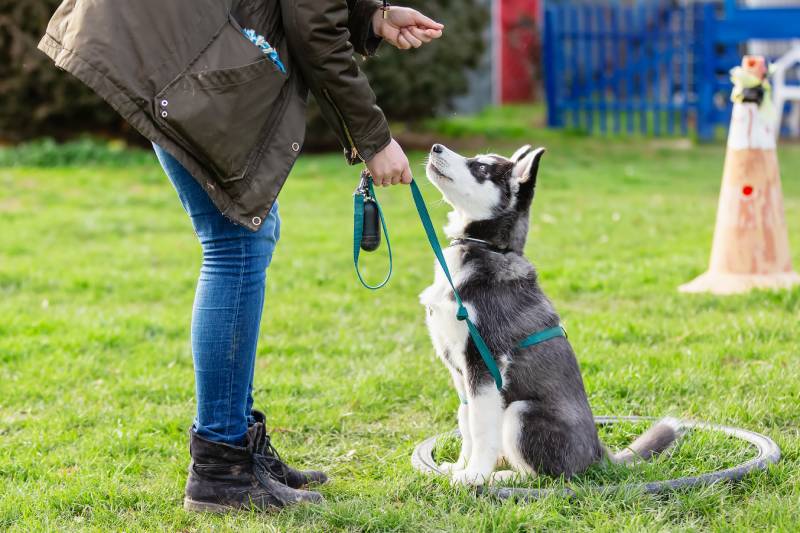Where Does the Fido Dog Name Come From? History Revealed
By Adam Mann
Updated on

If you’ve ever heard someone give a name to a dog they don’t know, chances are they used the name Fido. But why can people so commonly refer to just about any dog as Fido now, and where did all this come from?
We’re glad you asked because it’s a pretty interesting story originating in the times of President Lincoln and his dog. And while you probably don’t want to actually name your pup Fido, we’ve also come up with some tips you can follow when you are naming your pooch!
A Surprising History
While “Fido” is a term that’s now ambiguous for any dog, it was once a very common name for dogs, and its original name has presidential origins. While President Abraham Lincoln wasn’t the first person to name his dog Fido, he was the most famous.
President Lincoln had a yellow mongrel with big, flappy ears and named him Fido years before he ever saw the Oval Office. Fido is a Latin word that translates to “to trust, believe, or confide in,” which happens to be a perfect way to describe a dog, and to a politician, it’s just more positive words to throw into a campaign.
And just as people today tend to name their pets and sometimes kids after what famous people do, the same was true during Lincoln’s time. Lincoln named his dog Fido and the masses followed suit, and it wasn’t long until it seemed like just about every dog had the name Fido. Soon, everyone was calling just about every dog Fido, even if that wasn’t their name!
The 5 Tips for Naming Your Dog
Naming your pup is a big decision and one that’s going to stick with them throughout their entire lives, so you want to get it right. With that in mind, we’ve highlighted five tips you should follow to help you find the right name for your pet.
1. Avoid Names That Sound Like Commands
If you plan on training your dog, and you should, you need to keep in mind the commands you plan on using when you’re training them. For instance, if you plan on using a “Sit” command, the last thing you want to name your dog is something like “Britt.”
It’s tough enough for your dog to try and figure out what you’re saying, and you don’t want to confuse them with a bunch of confusing-sounding terms while training. Of course, if your dog already has a name and you’re teaching them a command with a similar-sounding name, nothing is stopping you from changing the name of the command.
2. Keep It Simple
Dogs don’t speak English, and they won’t, no matter how long you try to teach it to them. This is why you need to keep your dog’s name simple and unique sounding. The longer the name, the harder it is for your pet to learn, while a short name with a unique sound makes it easy for them to recognize when you’re calling.

3. Say The Name Out Loud
When you’re researching dog names, you’re reading them, not saying them out loud. And while some of them might sound great inside your head, they don’t always sound the same when you’re actually speaking. You’ll need to say your dog’s name a lot, and chances are you won’t need to write it down too much, so it’s far more important to come up with a name that sounds great instead of looking great.
4. Use Their Personality and Appearance
There are many options for dog names out there, and you really want to find a name that fits your individual pet. Each dog has a unique personality and physical characteristics, so why not try to incorporate those things into their name?
This doesn’t mean you need to go super generic with a name like Spot, but you can find something that’s specific to your pup.
5. Avoid Common Words
You want your dog to know when you’re talking to them, and if you name them something that you say a lot or something that sounds too similar to a word or name you already use regularly, they’ll start tuning out that word. They won’t be purposely trying to ignore you, but it could be confusing for them.

Final Thoughts
Fido might seem like the most popular dog name out there, but the truth is not many people name their dog Fido anymore! It’s just a way to talk about dogs in general.
But with such a unique history, there’s nothing wrong with calling a dog Fido when you don’t know their name. Just don’t act surprised when you learn that their name is actually something else!
Featured Image Credit: Kimrawicz, Shutterstock













